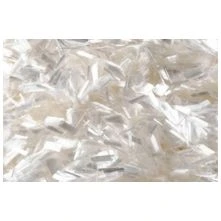Get A Quote
BIS Certification for Synthetic Micro-Fibres for Use in Cement-Based Matrix IS 16481: 2016

Synthetic micro-fibres are integral to cement-based matrices, enhancing the physical properties of concrete and mortar. These fibres improve durability by enhancing crack resistance and overall mechanical strength. They also increase tensile strength, reducing the likelihood of cracking during the curing process, and help prevent corrosion by reinforcing the concrete's structural integrity.
Widely used in various construction applications such as flooring, walls, and precast concrete products, synthetic micro-fibres play a crucial role in improving the longevity and performance of concrete structures.
Introduction
Under the Quality Control Order 2023, DPIIT mandates BIS certification for Synthetic Micro-Fibres used in Cement-Based Matrix as per IS 16481:2016, effective from January 1, 2024. This certification ensures that only high-quality synthetic micro-fibres are used in construction materials, contributing to the safety and durability of the structures in which they are applied.
Why BIS Certification is Necessary for Synthetic Micro-Fibres
Overview of Indian Standard IS 16481:2016
Process for BIS Certification for Synthetic Micro-Fibres
- Application Submission: Manufacturers submit the application form along with required documentation to
BIS.
- Documentation Review: BIS reviews the submitted documentation to ensure compliance with IS
16481:2016.
- Factory Inspection: BIS officials inspect the manufacturing facility to assess production practices
and quality control processes.
- Sample Testing: Product samples are tested in BIS-approved laboratories for compliance with the
required standards.
- Certification Grant: After successful inspection and testing, BIS grants certification, allowing the use of the ISI mark on the synthetic micro-fibres.
Documents Required for BIS Certification for Synthetic Micro-Fibres
Manufacturers must provide the following documents:
- Completed application form
- Manufacturing process details
- Quality control plans and procedures
- Test reports from BIS-accredited laboratories
- Factory layout and equipment details
- Business registration documents
- Product specifications and technical data
- Declaration of conformity to IS 16481:2016
Additional documentation may be required based on specific compliance needs.
BIS Documents For Domestic and Foreign Manufacturer Check
BIS ISI Mark Certification Costing And Timeline
To Know The Process in Detail, Please Visit:
Under BIS Registration Products ISI and CRS
Conclusion
BIS certification for Synthetic Micro-Fibres for Cement-Based Matrix under IS 16481:2016 ensures that the fibres meet the highest standards of performance, durability, and safety, enhancing the quality of cement-based materials in construction. This certification assures manufacturers that their products will improve the structural integrity and reliability of concrete and mortar. EVTL India offers expert support throughout the BIS certification process, assisting with documentation, regulatory compliance, and submissions. By partnering with EVTL India, manufacturers can streamline certification and boost the market readiness of their synthetic micro-fibres and other construction materials. Contact EVTL India today for professional guidance on obtaining BIS certification for Synthetic Micro-Fibres.
Free Call Back
Latest News & Update
📅 BIS Critical Component List (CCL) Updates for Solar PV Modules
🕒 BIS Fee Concessions for MSMEs and Startups | EVTL India
📅 Guidelines for Implementation of Essential Requirements for Security of CCTV
🕒 Omnibus Technical Regulation (OTR) Amendment Order, 2025
🕒 Extension of Timeline for Filing Annual Returns by Battery Producers
📅 Extension of Timeline for Filing Quarterly and Annual Returns for E-Waste
🕒 Extension of Concurrent Running Period for IS 302-1: 2008 and IS 302 (Part 1): 2024
🕒 BIS Guidelines for Grant of Licence (GoL) | EVTL India
📅 CPCB Guidance on filing of Application, Fees and more
🕒 CPCB Notification on Labelling of Plastic Packaging
📅 Mandatory Compliance for Input Materials of Steel and Steel Products for Imports
🕒 BIS Guidelines for Scheme-X Certification for OTR-Regulated Products
📅 BIS Upgrades Product Certification License Numbers to 10-Digit Series
🕒 BIS Certification No Longer Mandatory for 14 Chemical & Polymer Categories
Why Choose EVTL INDIA
Expertise in Indian Regulatory Standards
End-to-End Support
Trusted by Top Indian & Global Brands
Fast Processing & Transparent Pricing
Strong Liaison with Indian Authorities
Company Profile















